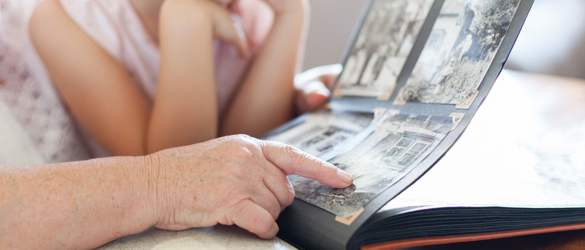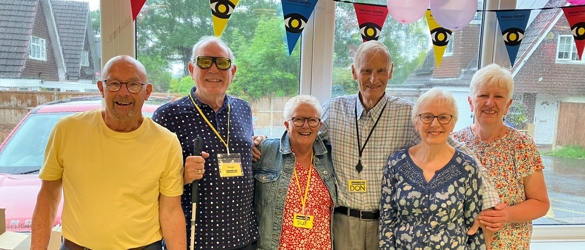John's story

On the evening of 26 January 2013, I was going to sit down and watch television, but I had a bit of a headache, so I decided to go straight to bed. I woke up the following morning, and I couldn’t see my hand in front of my face – simple as that. I couldn’t see a thing.
I was told I’d had a haemorrhage, but my sight would return in 6 weeks. That was in April 2013, and I’m still waiting. No one has actually ever told me what my condition is. The only reason I know what I’ve got is because I happened to receive a copy of a letter – I’ve no idea if I was supposed to have it or not – that one specialist at the hospital had written to another about me. The letter said that I had diabetic retinopathy and diabetic-related macular degeneration.
A year after I was diagnosed I was really at the bottom of a hole; I just wasn’t interested in doing anything. I’ve got to be honest, I didn’t care whether I lived or died, I really didn’t. But things changed for me in May 2014, when I went to the Shropshire See Hear exhibition. I still don’t really know what prompted me to go, but at the exhibition, I met a gentleman called Bryan who ran the macular support group in Telford. He told me about the group and invited me along to the next meeting. I agreed to go, and I’m so glad I did.
I’ve been going ever since and I can honestly say that it’s changed my life. Everyone there was so helpful. They sent transport to pick me up and when I got there, there was a seat for me and a welcome, it was just so nice. People can talk about what their experiences are and can share whatever they want – that’s really the best thing about it.
If it wasn’t for the group, I might not be here now. My son-in-law has certainly said that to me too. Your family can support you, but they don’t know what you’re going through. If I hadn’t had people to talk to who know about it, I think I would have completely lost interest in everything.
When Bryan decided he was going to retire as leader, I thought: ‘there’s no way I can let this go’, so I’m now leading the group myself. Raising awareness is the main thing. Not enough people know that support is there if they need it, and that’s why we need to tell as many people as possible. People need to know they can come to us or any other visually impaired group.
Research is important too. Hopefully some of the trials that are happening at the moment will help people get their sight back. I had the news on the other night and they were talking about this gene therapy trial (at Oxford Eye Hospital) that’s been taking place – you hear things like that and it’s definitely encouraging.
Donations made in loving memory help fund services such as our local support groups that enabled John, and many others like him, to feel less alone and to talk about their diagnosis.
Looking for information about living with a macular condition?
Call the Macular Society Helpline on 0300 3030 111 or email help@macularsociety.org
Donate in memory 
There are many ways you can give in memory to help beat macular disease – by phone, post or online.
Local support groups 
Our local support groups are for people of working age and older, and provide information, support and friendship to people with macular disease and sight loss.
Free confidential advice and support
Call our helpline on 0300 3030 111
Lines are open 9am - 5pm Monday to Friday
About the Macular Society Helpline


